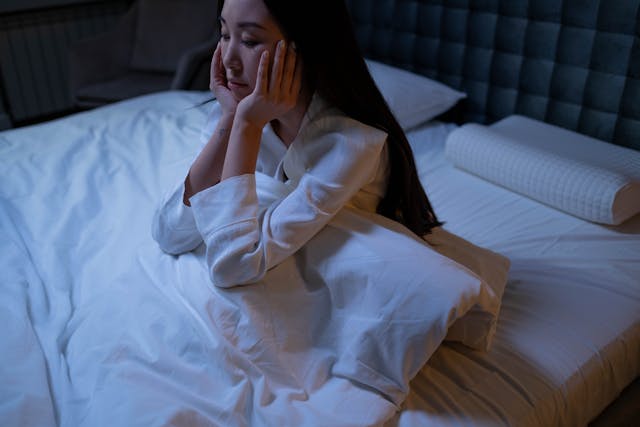
Tossing and turning in bed, counting sheep, or staring at the ceiling – we’ve all been there. Sleep is essential for our well-being, but what happens when it becomes elusive? From battling insomnia to wrestling with restless legs, the world of sleeping problems can be a frustrating place. Alcohol and drug addicts often struggle with sleep issues, as substance abuse can disrupt the body’s natural sleep cycle. Alcohol & Drug Rehabs: Detox & Addiction Treatment Centers Near Me In Arkansas can help individuals struggling with addiction. In this blog post, we’ll dive into some common sleeping issues and explore ways to conquer them so you can finally bid farewell to those sleepless nights.
Insomnia
Do you find yourself staring at the clock, willing sleep to come, but it remains just out of reach? Welcome to the world of insomnia. This frustrating condition can leave you feeling exhausted and irritable, impacting your daily life in more ways than one. Insomnia can be triggered by a multitude of factors – stress, anxiety, poor sleep habits, or even certain medications. It’s like a persistent house guest who refuses to leave no matter how many hints you drop. The good news is that there are strategies to combat insomnia. From establishing a calming bedtime routine to creating a comfortable sleeping environment, small changes can make a big difference.
Sleep Apnea
Do you ever wake up feeling groggy even after a full night’s sleep? It could be due to sleep apnea, a common but serious condition where your breathing repeatedly stops and starts during the night. This disruption in your breathing can lead to poor-quality sleep and leave you feeling exhausted during the day. One of the main symptoms of sleep apnea is loud snoring accompanied by pauses in breathing. If left untreated, this condition can increase the risk of high blood pressure. Fortunately, there are treatments available for sleep apnea ranging from lifestyle changes to continuous positive airway pressure (CPAP) therapy.

Restless Leg Syndrome
Restless Leg Syndrome – you may have heard of it, but do you really know what it entails? This condition is characterized by an uncontrollable urge to move your legs, often accompanied by uncomfortable sensations like tingling or burning. Imagine trying to relax and unwind after a long day, only to be plagued by these relentless feelings in your lower limbs. For those affected by restless leg syndrome, sleep can become a distant dream. The constant need to move their legs can disrupt their ability to fall and stay asleep, leading to chronic fatigue and irritability during the day. It’s not just about feeling restless; it’s about the impact this condition has on one’s quality of life.
Narcolepsy
Narcolepsy is a neurological disorder that affects the brain’s ability to regulate sleep-wake cycles. People with narcolepsy often experience excessive daytime sleepiness, sudden loss of muscle tone (cataplexy), hallucinations, and sleep paralysis. Imagine feeling overwhelmingly tired throughout the day, no matter how much you try to stay awake or energize yourself. This is the reality for individuals living with narcolepsy. It can be disruptive to daily routines, impacting work, social life, and overall quality of life. Managing narcolepsy involves a combination of lifestyle changes, medication, and support from healthcare professionals. Creating a consistent sleep schedule, practicing good sleep hygiene habits, and taking prescribed medications can help alleviate symptoms and improve daily functioning.
By implementing healthy sleep habits such as maintaining a consistent sleep schedule, creating a relaxing bedtime routine, and ensuring your sleep environment is conducive to restful sleep, you can improve your overall quality of sleep. Remember that everyone’s journey to better sleep may look different, so don’t get discouraged if progress feels slow. With patience and persistence in trying various techniques and treatments under the guidance of medical professionals, you can overcome your sleeping problems and enjoy more restful nights. Prioritize your well-being by prioritizing good quality of rest.
